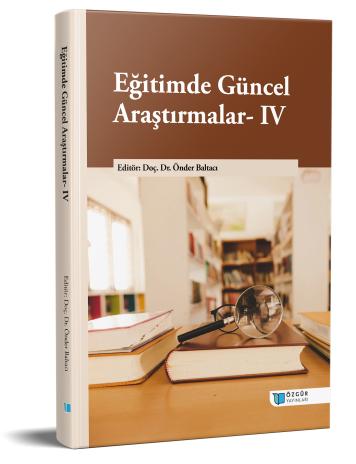
Probleme Dayalı Öğrenme Yaklaşımı
Şu kitabın bölümü:
Baltacı,
Ö.
(ed.)
2023.
Eğitimde Güncel Araştırmalar- IV.
Özet
Probleme dayalı öğrenme yöntemi bireyler bilişsel ve devinimsel becerilerini kullanarak etkin bir şekilde katılım gösterdikleri, deneyimlere dayanan kompleks ve gerçek hayat problemlerine çözüm üretmek amacıyla organize olunarak araştırma yapılan deneysel bir öğrenme olarak tanımlanmıştır. Probleme dayalı öğretim yaklaşımının bireylere eleştirel düşünme becerisi kazandırdığı bu sayede de bireylerin verilecek örnek gerçek yaşam problemleri üzerinde eleştirel düşünerek gerçekçi çözüm becerileri kazanacakları görüşünü savunmaktadır. Bu sayede ise temel kavramların öğretilebileceğini vurgulamıştır. Probleme dayalı öğrenmede problem tasarımında öğretmen, öğretim programına uygun ve gerçek yaşamda karşılaşıla bilinecek olmasına dikkat ederek bir problem ortaya koymalıdır. Dikkat edilmesi gereken durum ise ortaya konulan problemin öğrenenlerin sahip oldukları mevcut bilgilerini ortaya konan problem ile ilişkilendirebilecek düzeyde olmalıdır. Önemli olan ve dikkat edilmesi gereken bir diğer nokta ise ortaya konan problemin gerekli olan bütün bilgileri içermiyor olması buna karşın belirsizlik içermemesi ve çözülebilir olmasıdır. Probleme dayalı öğrenmenin uygulamadaki önemli noktalarından birisi de hazırlanan senaryoların gerçekliğidir. Senaryolar ne kadar gerçek hayatla ilişkili problemleri gerçeğine yakın yansıtırsa öğrenenlerin senaryoyu okuduktan sonra kendilerini oluşturulan problemin içinde hissetmeleri o kadar başarılı olacaktır.

